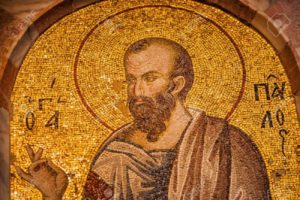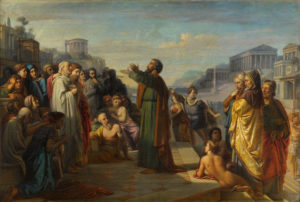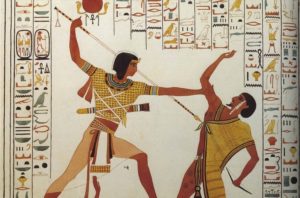FEATURED CONTENT
How Paul’s Philosophical Convictions Challenge the Church
Dr. Ryan O’Dowd takes on Paul’s supposedly anti-philosophical rhetoric in 1 Corinthians, showing that “faith, hope, and love” are actually philosophical concepts for the church.
Did the Biblical Authors Care about Conspiracy Theories?
Excerpt from the original article at Christianity Today magazine: Conspiracy thinking injects itself at this exact point. Who will guide…
Family Conflicts and the Restoration of the Cosmos, Part I: Morality amid Oppression and Humility
Surprisingly, the destructiveness, and even violence, evident within Abraham and Sarah’s family are exactly what suits it to God’s restorative purpose. This family is God’s answer to a violent and destructive world.
Part of the Family Conflicts and the Restoration of the Cosmos series
A Hebraic Approach to History: Response to Doran’s “The Theology of Foreign Policy”
Whether Americans adopt an Hebraic or Hellenic kind of theological worldview depends largely on if they identify more closely with an Hebraic or Hellenic kind of Christianity. The biggest determining factor may be one’s view of Scripture.
How Morality in the Bible Emerges within Narrative
When reading biblical narratives with multifaceted characters and complex situations, the reader is challenged to decipher ethical ambiguity, think through conflicts, and discover the implications for everyday life.
Biblical Theology: Scripture Is Not Our Dog
Unless we heed both Scripture’s content and its form, we risk making God’s revelation into a pet: loved but powerless.
Wisdom: Scientific, Biblical, and Otherwise
The Christian Scriptures focus on apprenticing under the correct authorities—those who skillfully discern God’s patterns in this world. Wisdom, then—for the scientist and for Christians in community—requires submitting ourselves to the proper authorities to learn discernment.
What Is This Thing Called Law?
CHT Fellow Dr. Joshua Berman discusses the difference between modern notions of law and how law functioned in the ancient Near East, including within the Hebrew Bible (Old Testament).









